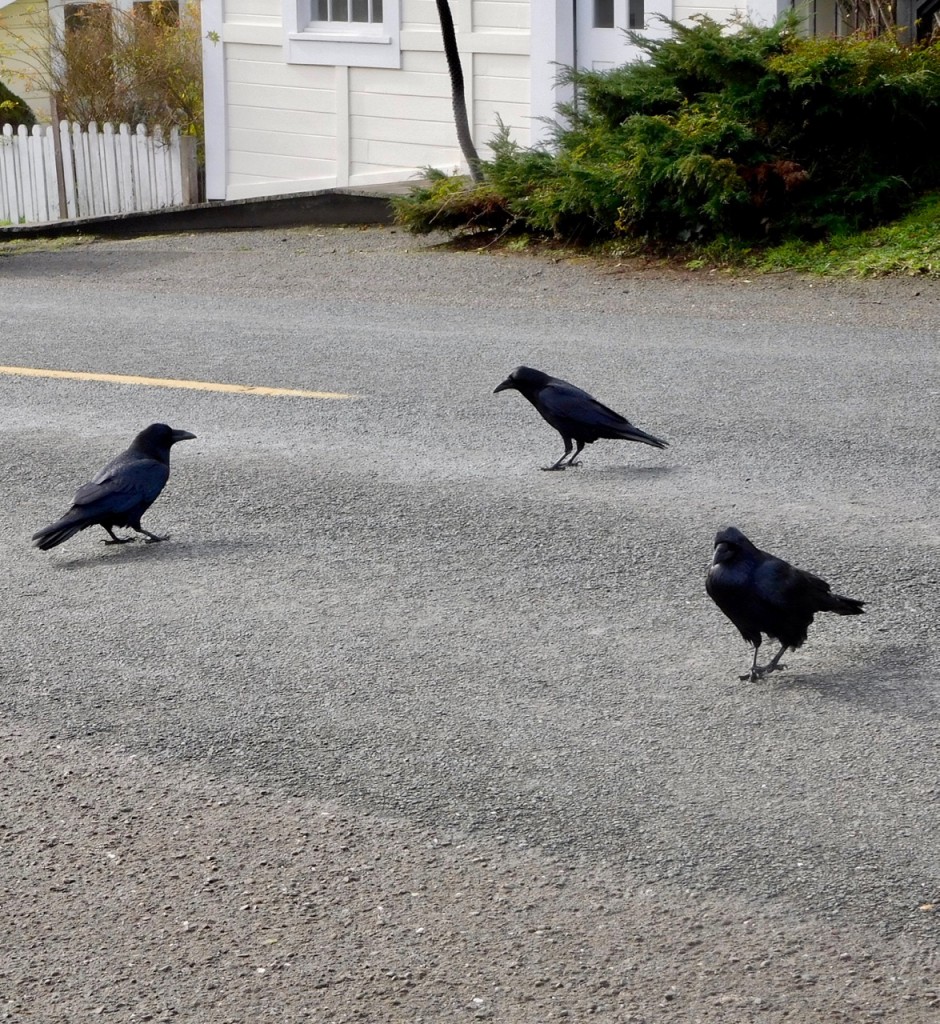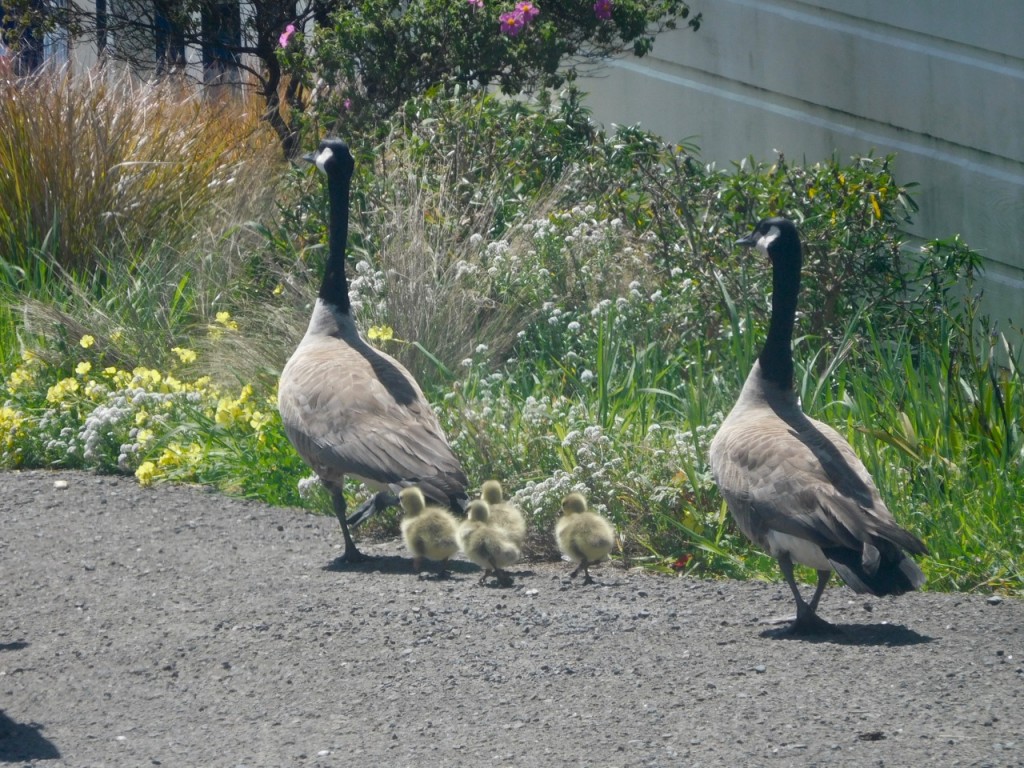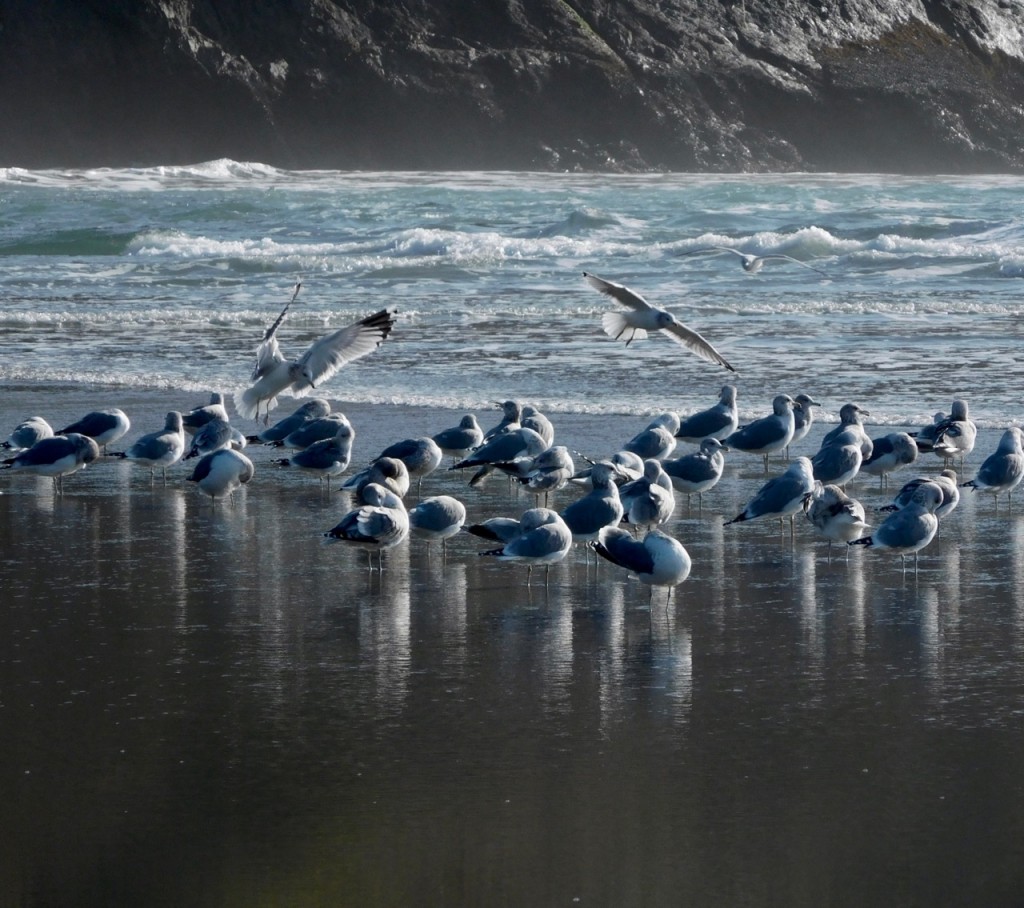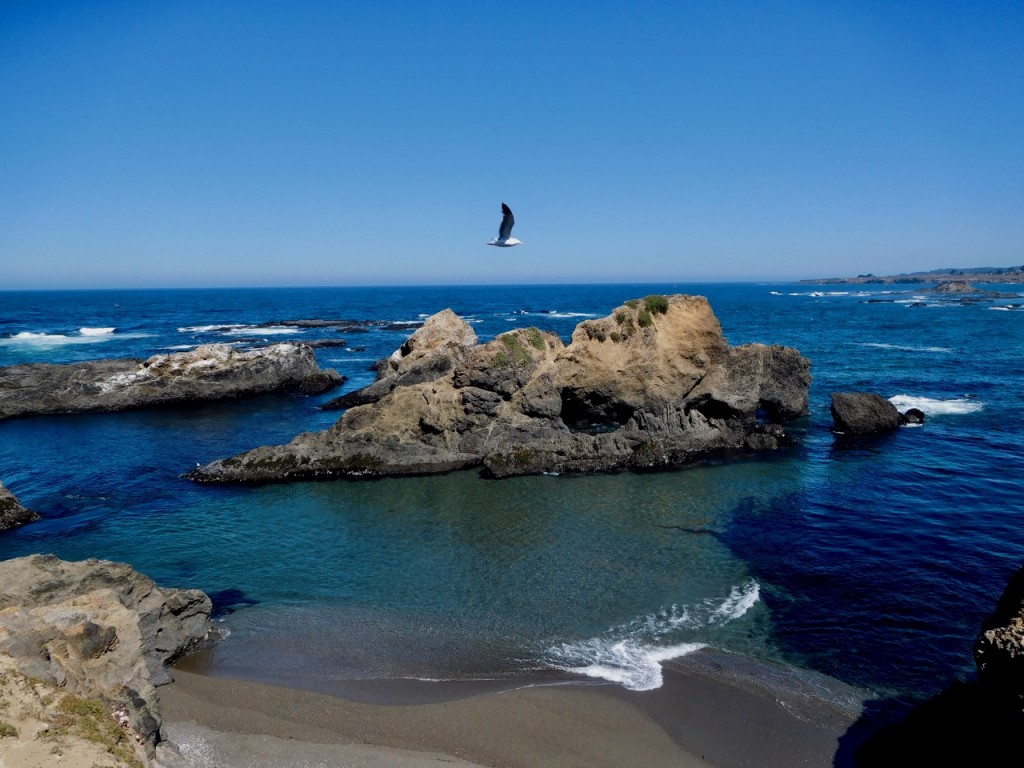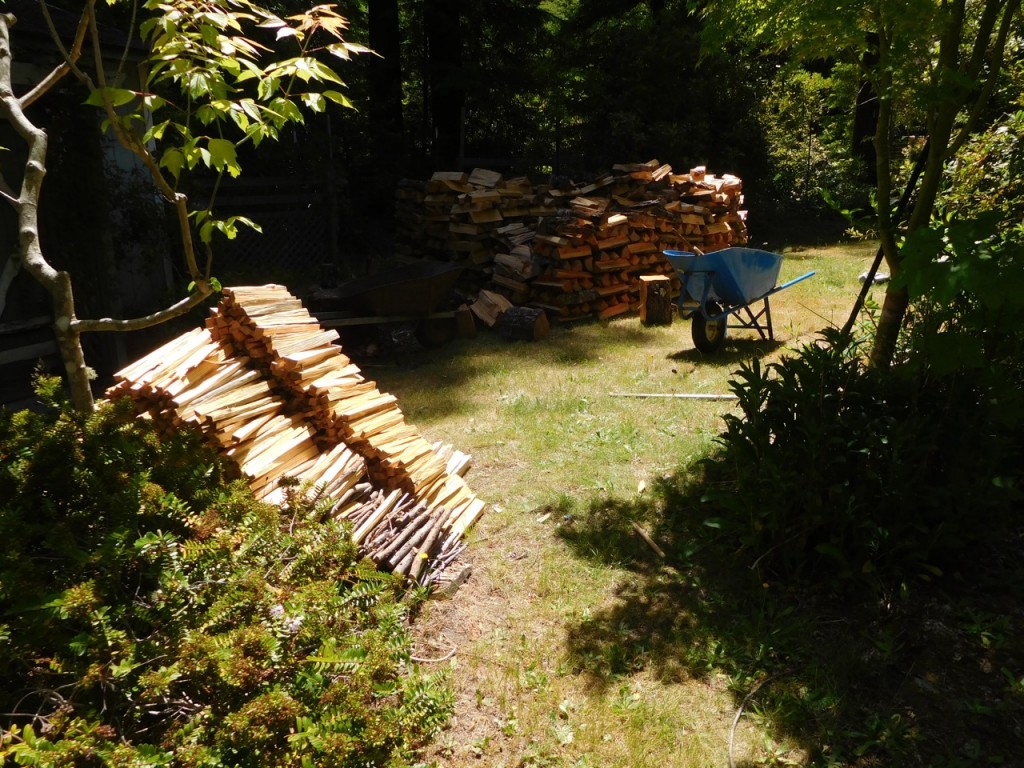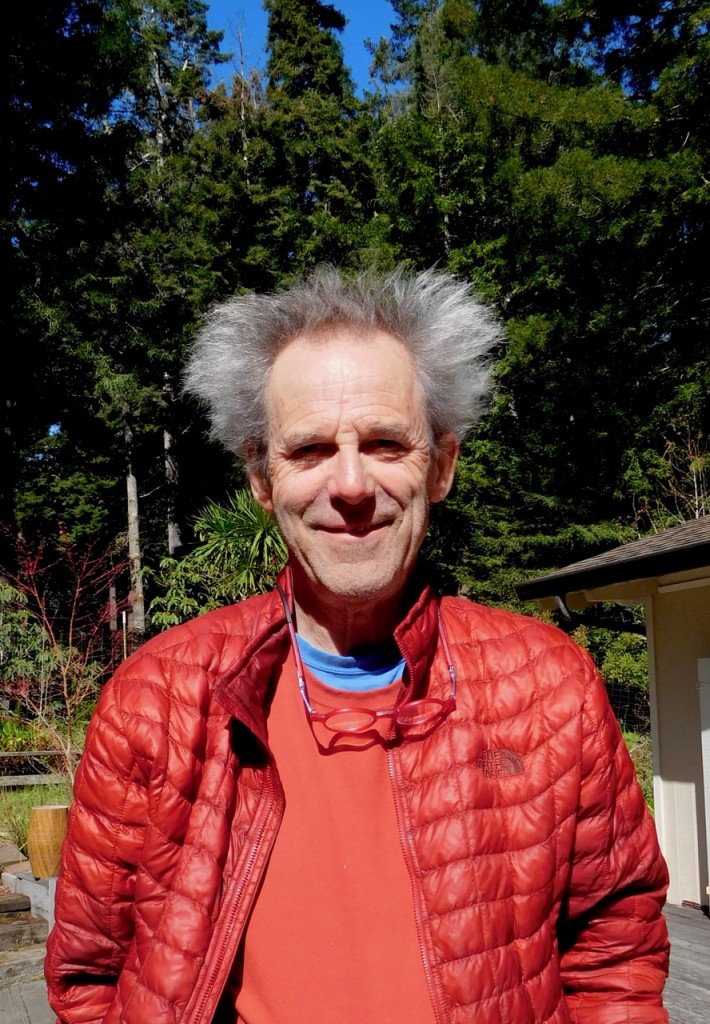
Molly Waiting photo by Todd
Marcia and I met Sally and Molly at Big River Beach for the extraordinary minus tide on Friday morning—Sally our human friend, Molly a Golden Retriever dedicated to fulfilling the imperative of her breed: retrieving.
The beach was vast, the ocean’s withdrawal awe-inspiring, and ere long we were standing on sand where for most hours of most days the water is several feet deep. We were the only people on the vast fantastical beach, and this reminded me of an encounter I had a week ago with a couple of German tourists.
I was sitting on a log on Big River Beach, eating an orange and reveling in the sun after several days of unrelenting fog, when the Germans, a man and woman in their thirties, approached me and asked in excellent English if I lived around here. I said I did, and the woman said excitedly, “Oh, good. Can you tell us why so few people live here? This is the most beautiful place we have ever been. California is so crowded. Why don’t more people move here?”
“Water,” I said, smiling out at the vast Pacific. “There is very little fresh water here and we are far from any large sources of water that might be readily piped here. So the population remains static at about a thousand people. I’ve been here for thirteen years, and only a handful of new houses have been built in that time and the population has remained unchanged.”
“Water,” said the woman, frowning. “But it is so lush here.”
“We’ve had relatively wet winters these last two years,” I explained. “But before that we had four years of drought. However, drought or no, every year in Mendocino we have more cloudy and foggy days than days of sun. The fog is a great moisturizer.”
“Too many foggy days can be depressing,” said the man, nodding.
“Yes,” I said, smiling up at the sun playing peek-a-boo with the clouds, “but oh do we get happy when the sun comes out.”
Which is true. The day I encountered the German tourists was our first sunny day after a week of perpetual grayness, and when I ran my errands before going to the beach, the bank tellers and postal agents and grocery store clerks and bakery patrons and tourists were all positively giddy, as if we had collectively won the lottery, which, in a way, we had—the solar lottery.
Being on Big River Beach for a minus tide feels like a lottery win, too, and every time I get home from that dramatically transformed landscape—the vast expanse of sand, the waves breaking far out in the bay, the river racing by—I feel rejuvenated. My piano playing is more inventive, my writing energized, and I feel physically and emotionally expanded. I also feel more optimistic, having been reminded so eloquently of what we are born knowing but often forget: we are part of an ongoing miracle.
Which reminds me of when I moved to Mendocino thirteen years ago from Berkeley, how for the first year I lived here I went to the beach almost every day, rain or shine, and I could feel my body and mind and senses healing from decades of city living, my spirit imbibing the wildness and spaciousness and purity of this place.
But isn’t it fascinating how one person’s miracle can be another person’s No Big Deal. For several days prior to the minus tide, I told everyone I knew about the coming miracle of the ocean’s larger-than-usual withdrawal, and though a few people expressed mild interest, for the most part my chattering about the minus tide fell on disinterested ears.
A man at the post office overheard me gushing about the minus tide to someone, and called to me gruffly, “You must be new here.”
“I’m sixty-eight,” I said, bewildered by his contemptuous tone. “And I’ve loved minus tides since I was a wee tyke.”
“I mean here,” he said, clearly annoyed by my reply. “You’re new here, not in the world.”
“I’ve lived here for thirteen years,” I said, knowing exactly what he was going to say next.
“Yeah,” he snorted. “A newbie.”
Big River is currently featuring a couple dozen harbor seals, which means there must be a sizeable population of fish and other tasty comestibles in the river, which speaks well of the health of the watershed. On our most recent minus tide visit, we saw some seals doing something we’d never seen them do before—resting on their bellies on the sand in shallow water with their tails raised behind them and their backs arched so their heads were out of the water, too.
In yoga they call this posture Dhanurasana, the bow pose, and humans performing this asana maintain the bow by gripping their ankles or feet with their hands. Seals do not have hands, so they execute the pose without holding onto anything, and they can hold the pose effortlessly for a long time.
Molly, when not chasing her tennis ball, is fascinated by the seals, and the seals seem quite interested in her, too. Sometimes Molly will try to swim out to the seals, and Sally always calls her back before tragedy can ensue. Interestingly, Molly was not the least interested in the seals performing Dhanurasana, perhaps because they were holding so still and she is more interested in things that move.
At one point on our minus-tide sojourn, we were crossing an expanse of sand that is usually underwater, when simultaneously the four of us, three humans and a dog, sank into quicksand up to our shins; and it was not easy getting free of the sucking muck. However, we did not retreat, but sloshed through the goopy stretch to reach more solid sand as far out into the bay as we could go, from where we looked back at the land and saw the cliffs and the beach and the river as we rarely get to see them.

